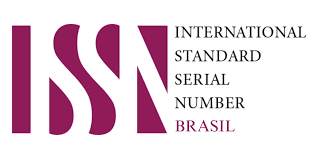AGRONOMIC RESPONSES TO THE INTENSIFICATION OF GRAIN PRODUCTION SYSTEMS IN DRYLAND FARMING OF CENTRAL MINAS GERAIS
DOI:
https://doi.org/10.37856/bja.v96i1.4266Abstract
This work aimed to evaluate the agronomic responses to the intensification of grain production systems under water restriction in the central region of Minas Gerias, Brazil. We studied six systems, including soybean and maize monocropping with medium investment in maintenance fertilization, and the annual alternating of these crops in medium or high investment, with inclusion or not of ruzigrass for straw increment. Soybean and maize in monocropping lose yield potential over time compared to their alternating cultivation. Greater fertilization in soil with built fertility does not increase the yield accumulated until the fourth harvest. The intercropping with ruzigrass can hamper maize yield under lower fertilization. The ruzigrass increases the average production of residues for straw formation in the soybean/maize system, approaching 8 t ha-1 year-1. After four crop seasons, differences in soil chemical attributes are still not evident due to the diversification / intensification of the production system.Downloads
Published
2021-04-14
How to Cite
DE PAULA SIMãO, Eduardo; VILELA DE RESENDE, Ãlvaro; GIEHL, Jeferson; CARDOSO GALVãO, João Carlos; BORGHI, Émerson; DE OLIVEIRA, Antônio Carlos; MARQUES GONTIJO NETO, Miguel. AGRONOMIC RESPONSES TO THE INTENSIFICATION OF GRAIN PRODUCTION SYSTEMS IN DRYLAND FARMING OF CENTRAL MINAS GERAIS. Brazilian Journal of Agriculture, Piracicaba, v. 96, n. 1, p. 277–293, 2021. DOI: 10.37856/bja.v96i1.4266. Disponível em: https://fealq.org.br/ojs/index.php/revistadeagricultura/article/view/4266. Acesso em: 28 feb. 2026.
Issue
Section
Artigos







